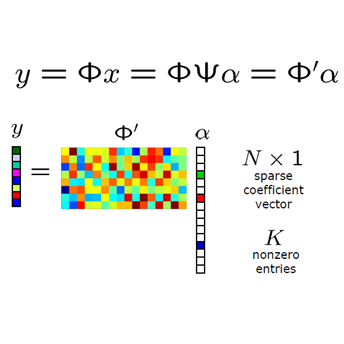The goal of compressed sensing is to estimate a high dimensional vector from an underdetermined system of noisy linear equations. In analogy to classical compressed sensing, here we assume a generative model as a prior, that is, we assume the vector is represented by a deep generative model $G: \mathbb{R}^k \rightarrow \mathbb{R}^n$. Classical recovery approaches such as empirical risk minimization (ERM) are guaranteed to succeed when the measurement matrix is sub-Gaussian. However, when the measurement matrix and measurements are heavy-tailed or have outliers, recovery may fail dramatically. In this paper we propose an algorithm inspired by the Median-of-Means (MOM). Our algorithm guarantees recovery for heavy-tailed data, even in the presence of outliers. Theoretically, our results show our novel MOM-based algorithm enjoys the same sample complexity guarantees as ERM under sub-Gaussian assumptions. Our experiments validate both aspects of our claims: other algorithms are indeed fragile and fail under heavy-tailed and/or corrupted data, while our approach exhibits the predicted robustness.
翻译:压缩遥感的目标是从一个不确定的噪音线性方程式系统中估计出一个高维矢量。 与古典压缩感测相比, 我们在这里假设一个基因模型是先前的, 也就是说, 我们假设该矢量体代表的是一个深重基因模型$G:\mathbb{Räk\rightrow\mathbb{R ⁇ n$。 在测量矩阵为亚高库西语时, 典型的回收方法, 如实验风险最小化(ERM) 等, 保证成功。 但是, 当测量矩阵和测量是重零售或有外星时, 恢复可能大大失败。 在本文中, 我们的算法保证了重成型数据的恢复, 即使外星存在。 从理论上讲, 我们的新MOM算法在亚高库西语假设下享有与机构风险管理相同的样本复杂性保证。 我们的实验验证了我们索赔的两个方面: 其它的算法确实脆弱, 在重成型和( ) 腐败数据下失败。 我们的算法显示了我们的方法显示了预测的稳健性。




